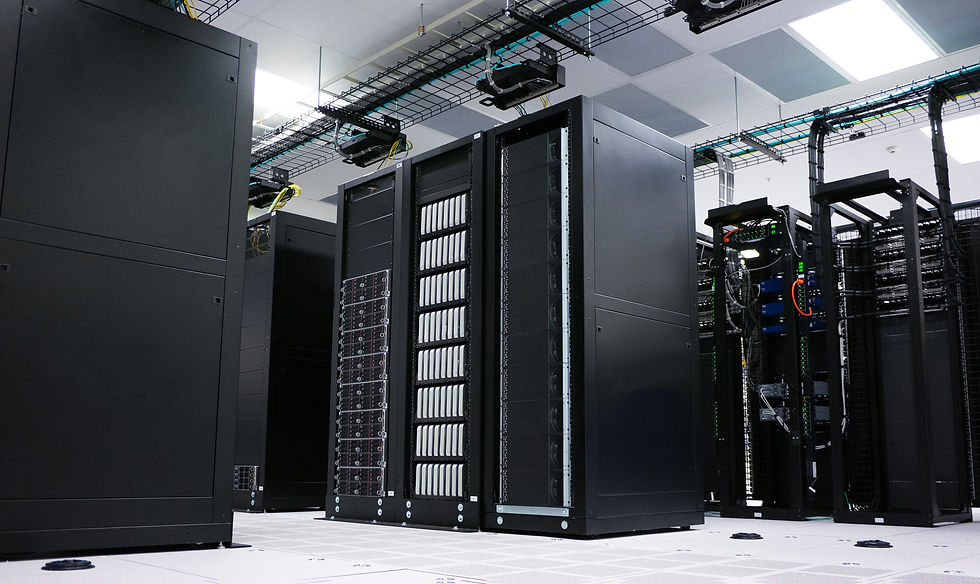The End of Peer Review for CPA Firms: A Look into the Future of Audit and Assurance
- louisberry5

- Oct 31, 2024
- 4 min read

In recent years, technological advancements have driven significant change in the accounting and audit professions, reshaping the way CPAs perform their essential work. But as innovation accelerates, we may be on the verge of witnessing one of the most transformative shifts yet—the end of the Peer Review requirement for CPA firms performing audit and attest functions. Today, Peer Review exists to ensure audit quality and uphold public trust in financial reporting. However, with powerful new tools and evolving regulatory oversight, it’s possible to envision a future where traditional Peer Review is no longer necessary.
Here’s why this shift could happen and what it means for the accounting profession.
1. Advances in Artificial Intelligence (AI) and Automation
One of the most influential factors driving change in audit quality is the rise of AI and automation. By using advanced algorithms, CPA firms can now analyze vast quantities of data, detect anomalies, and apply predictive analytics to identify potential audit risks before they become significant issues. This technology not only improves the efficiency of audits but also reduces the likelihood of human error, thereby increasing audit accuracy and reliability.
If AI can constantly monitor and evaluate audit processes and outcomes, the need for periodic Peer Review becomes less critical. Advanced systems can be programmed to follow auditing standards rigorously, conducting real-time compliance checks that would have previously been the domain of human peer reviewers.
2. Data Analytics and Continuous Auditing
Continuous auditing and data analytics have revolutionized the way firms approach audit and attest engagements. Instead of relying on manual sampling, continuous auditing allows for the analysis of entire datasets in real-time, uncovering irregularities instantly. This means audits can now be performed continuously, rather than as a snapshot at one point in time.
With continuous auditing, many of the quality control functions that Peer Review provides are embedded directly into the audit process itself. Firms equipped with these capabilities can ensure that their audits are continually aligned with regulatory standards, making it less necessary for an external reviewer to step in periodically to check for quality.
3. Blockchain Technology and Immutable Records
Blockchain technology presents an extraordinary leap forward for audit reliability. With blockchain, financial transactions can be recorded as immutable “blocks” that, once validated, cannot be altered. This immutable nature provides an audit trail that is automatically verified and accessible, allowing firms to have accurate, real-time records without the need for traditional sampling or testing methods.
Blockchain can enhance transparency and significantly reduce fraud risks, which are primary concerns addressed by Peer Review. If firms adopt blockchain at scale, the technology could serve as a built-in quality control mechanism, reducing the need for human review.
4. Increased Regulatory Oversight and Real-Time Compliance
As the regulatory environment shifts towards real-time compliance reporting, oversight bodies like the AICPA, PCAOB, and SEC are pushing for frameworks that increase accountability and transparency. In the future, regulators might directly access a CPA firm’s audit data through secure, real-time channels, enabling a higher level of transparency without traditional Peer Review.
This level of regulatory integration would bring about a more automated and data-driven approach to quality control, allowing regulatory bodies to continuously assess audit quality without needing a periodic Peer Review system. As a result, CPA firms could be incentivized to adopt rigorous self-regulation practices embedded into their audit workflows, leaving Peer Review as an outdated relic.
5. Enhanced Focus on Cybersecurity and Data Privacy
With the rise of cybersecurity risks, data privacy has become an integral part of the audit process. CPA firms are under increasing pressure to ensure that they’re following cybersecurity best practices and protecting sensitive data throughout their audit engagements. Automated quality control processes, governed by strict cybersecurity protocols, can help firms safeguard data integrity without the need for external Peer Review.
Firms that invest in cybersecurity automation will be able to monitor their own quality control measures in real time, meeting client and regulatory expectations in a secure, efficient manner that lessens the traditional Peer Review requirements.
What This Means for CPA Firms
If Peer Review requirements were to dissolve, CPA firms could potentially see a reduction in compliance costs and administrative burdens. However, this change would require firms to invest significantly in technology and training, focusing on continuous auditing, advanced data analytics, and security.
On a larger scale, eliminating Peer Review could enhance audit efficiency and accuracy, as CPA firms shift to a technology-driven quality control model. While some firms may worry about the lack of external oversight, the promise of advanced, self-regulating systems could ultimately increase public confidence in the quality of financial reporting.
Embracing the Future
As technology advances, the CPA profession must remain adaptable. CPA firms that embrace this forward-thinking vision—investing in AI, blockchain, data analytics, and cybersecurity—may find that the future of audit is already within their reach. While Peer Review has served an essential role in maintaining the quality of audit and attest functions, its potential obsolescence points to an exciting era of enhanced accountability, efficiency, and trust.
In this world, CPA firms and the clients they serve can look forward to a future where quality assurance is built into every step of the audit process—no Peer Review required. The question isn’t if, but when, this new era will arrive.



Comentários